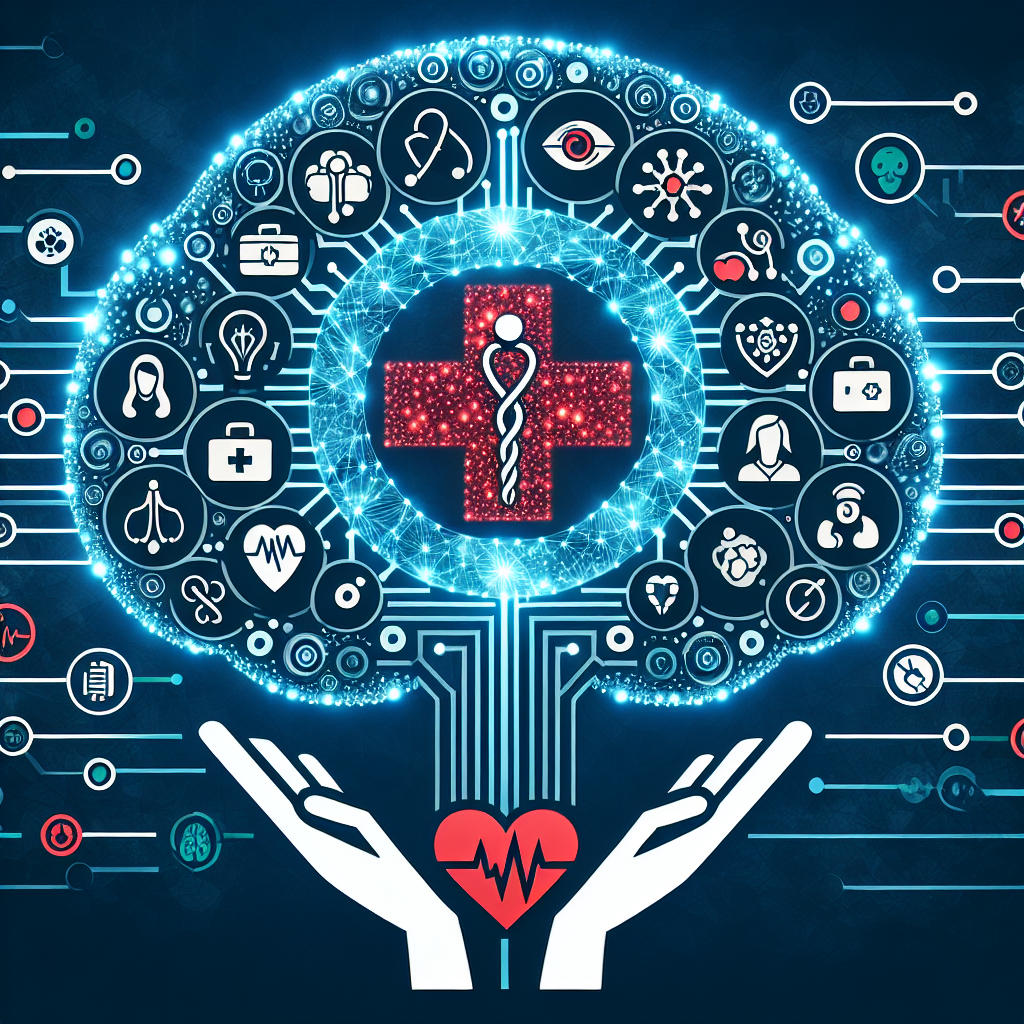Artificial Intelligence (AI) has been steadily transforming the healthcare industry in recent years, offering innovative solutions to improve patient care, streamline administrative processes, and enhance overall efficiency. One area where AI is making a significant impact is in employee engagement within healthcare organizations. By harnessing the power of AI, healthcare providers can empower their employees to deliver better patient care, increase job satisfaction, and ultimately improve the overall quality of healthcare services.
Employee engagement is a critical aspect of any healthcare organization, as it directly impacts the quality of patient care and the overall performance of the organization. Engaged employees are more likely to be motivated, productive, and committed to their work, leading to better patient outcomes and higher levels of patient satisfaction. However, healthcare employees often face high levels of stress, burnout, and job dissatisfaction due to the demanding nature of their work. This is where AI can play a significant role in improving employee engagement and overall job satisfaction.
One of the key ways in which AI can enhance employee engagement in healthcare is by automating routine and repetitive tasks, allowing employees to focus on more meaningful and fulfilling aspects of their work. For example, AI-powered chatbots can handle basic administrative tasks such as scheduling appointments, answering patient queries, and processing insurance claims, freeing up healthcare employees to spend more time interacting with patients and providing personalized care. This not only reduces the workload on employees but also enhances their job satisfaction by allowing them to focus on tasks that require their expertise and skills.
AI can also help healthcare organizations better understand their employees’ needs and preferences, enabling them to tailor their engagement strategies accordingly. By analyzing data from various sources such as employee surveys, performance reviews, and feedback, AI can identify patterns and trends in employee behavior and sentiment, allowing organizations to proactively address issues and implement targeted interventions to improve employee engagement. For example, AI-powered predictive analytics can identify employees at risk of burnout or disengagement and provide personalized recommendations for interventions such as counseling, training, or workload adjustments.
Furthermore, AI can facilitate communication and collaboration among healthcare employees, particularly in large and geographically dispersed organizations. Virtual collaboration platforms powered by AI can enable employees to connect, share information, and collaborate on projects in real-time, regardless of their physical location. This not only fosters a sense of community and teamwork among employees but also enhances their sense of belonging and engagement within the organization.
In addition to improving employee engagement, AI can also enhance the quality of patient care by providing healthcare employees with timely and relevant information to make informed decisions. AI-powered clinical decision support systems can analyze vast amounts of patient data, medical records, and research literature to provide healthcare professionals with evidence-based recommendations for diagnosis, treatment, and care management. This not only improves the accuracy and efficiency of clinical decision-making but also empowers healthcare employees to deliver more personalized and effective care to their patients.
Moreover, AI can help healthcare organizations optimize their staffing levels and resources to meet the demands of patient care. By analyzing data on patient volumes, acuity levels, and staff availability, AI can predict peak times of demand and allocate resources accordingly to ensure that patients receive timely and appropriate care. This not only improves the efficiency of healthcare operations but also reduces the burden on employees by preventing understaffing or overstaffing situations.
Despite the numerous benefits of AI in enhancing employee engagement in healthcare, there are also challenges and concerns that need to be addressed. One of the main concerns is the potential impact of AI on job security and the displacement of human workers. While AI can automate certain tasks and processes, it is essential for healthcare organizations to emphasize the complementary role of AI in enhancing, rather than replacing, human employees. By focusing on upskilling and reskilling employees to work alongside AI technologies, healthcare organizations can maximize the benefits of AI while ensuring job security and career growth opportunities for their employees.
Another challenge is the ethical and privacy implications of using AI in healthcare, particularly in relation to the collection and analysis of sensitive patient data. Healthcare organizations must ensure that AI technologies comply with data protection regulations and ethical guidelines to safeguard patient privacy and confidentiality. By implementing robust data governance and security measures, healthcare organizations can build trust among employees and patients in the responsible use of AI technologies.
In conclusion, AI has the potential to revolutionize employee engagement in healthcare by empowering employees to deliver better patient care, improving job satisfaction, and enhancing overall organizational performance. By leveraging the capabilities of AI to automate tasks, personalize interventions, facilitate communication, and optimize resources, healthcare organizations can create a more engaging and supportive work environment for their employees. However, it is essential for healthcare organizations to address the challenges and concerns associated with AI implementation, such as job security, ethical considerations, and data privacy, to ensure a successful and sustainable integration of AI in healthcare employee engagement.
FAQs:
Q: How can AI improve employee engagement in healthcare?
A: AI can improve employee engagement in healthcare by automating routine tasks, providing personalized interventions, facilitating communication and collaboration, and optimizing staffing levels and resources.
Q: What are some examples of AI technologies that can enhance employee engagement in healthcare?
A: Examples of AI technologies that can enhance employee engagement in healthcare include chatbots for administrative tasks, predictive analytics for identifying at-risk employees, virtual collaboration platforms for communication, and clinical decision support systems for evidence-based recommendations.
Q: What are the challenges and concerns of using AI in healthcare for employee engagement?
A: Challenges and concerns of using AI in healthcare for employee engagement include job security, ethical and privacy implications, data governance and security, and the need for upskilling and reskilling employees to work alongside AI technologies.

